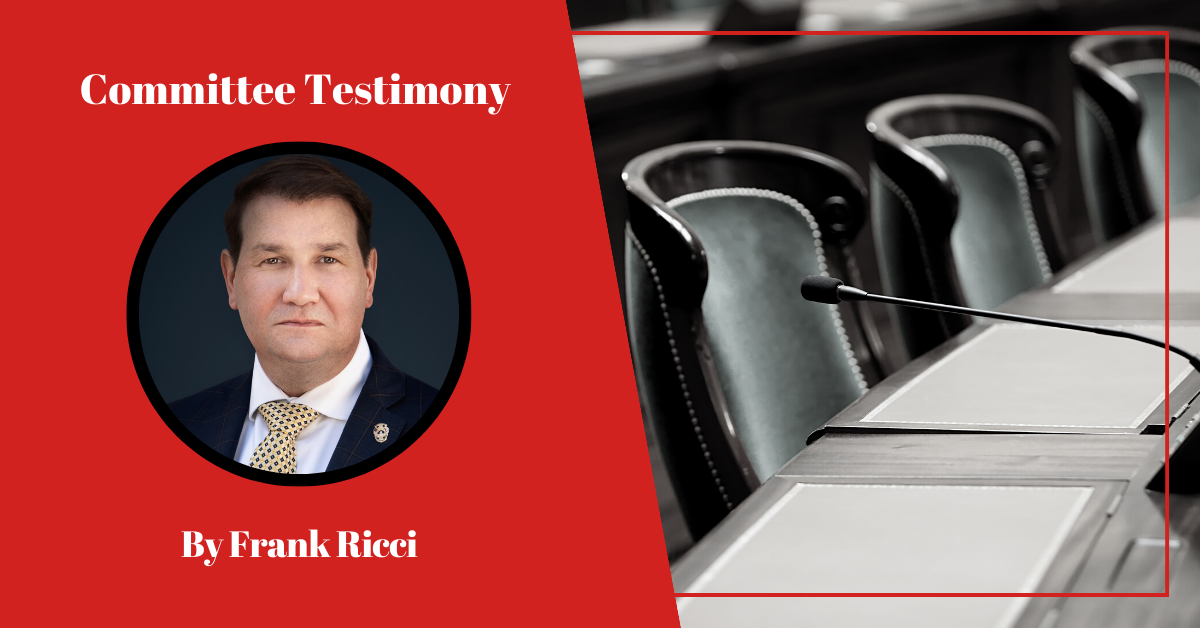Submitted by Frank Ricci, Labor Fellow
March 12, 2024
Thank you for the opportunity to testify in opposition to SB 413: The proposed bill, AN ACT CONCERNING PREDICTABLE SCHEDULING, raises concerns about government intrusion into the free market and the proper role of government in employer-employee relationship.
By mandating specific scheduling practices for covered employers, the bill appears to overstep the boundaries of a fair and open market, interfering with the natural dynamics of employment negotiations.
The government’s role should be to ensure the law is followed and protect the rights of all citizens. Dictating the intricacies of scheduling arrangements is not the proper role of government and ignores the employee’s free choice to apply for a job where there are potential scheduling issues.
As a former firefighter, I knew that there would be times that I would be required to change my schedule or I would stay on the scene of an emergency longer than expected, far beyond anyone’s control. The same is true in many industries across the state where the decision to enter that place of employment is always voluntary.
This proposed legislation reflects a heavy-handed approach by the government where it takes on the role of a union rather than remaining neutral in a dynamic employee/employer relationship. These types of excessive government intervention in the free market tend to increase costs, and risks increasing unnecessary and burdensome litigation, stifling market forces and hindering the economy.
Mandated scheduling may limit the flexibility of businesses to adapt to changing demands and might not align with the dynamic nature of certain industries. Moreover, the bill’s imposition of government-mandated scheduling introduces further administrative burdens.
Specific scheduling requirements on employers may lead to increased costs which would be passed on to consumers, adversely affecting the very individuals the legislation aims to protect. This bill is overly burdensome and does not promote a pro-growth environment that Connecticut desperately needs.
In the words of Nobel laureate Milton Friedman, “The most important single central fact about a free market is that no exchange takes place unless both parties benefit.” By prescribing detailed regulations on scheduling, the proposed bill may disrupt the delicate balance of mutual benefit that naturally emerges in voluntary employer-employee relationships within a free market.
The government’s intrusion into the employer-employee relationship through mandated scheduling practices goes beyond ensuring fairness and risks disrupting the efficient functioning of the free market.
Legislators should be cautious about overregulating employment dynamics, recognizing that the government’s role is to foster an environment where mutually beneficial exchanges can flourish without unnecessary interference.
Frank Ricci
Labor Fellow
Yankee Institute
203-285-4907

